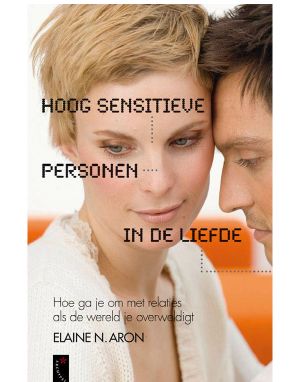Hoog Sensitieve Personen in de liefde

- Authors
- Aron, Elaine N.
- Publisher
- Archipel, Uitgeverij
- Tags
- psychology , self help
- Date
- 1996-01-01T00:00:00+00:00
- Size
- 0.36 MB
- Lang
- nl
Picking up where The Highly Sensitive Person left off, The Highly Sensitive Person in Love explores the sometimes bumpy but ultimately rewarding terrain that love relationships have to offer this group of people. HSPs, as they are known, make up the estimated 15 to 20 percent of the population that have very sensitive nervous system and are prone to deep reflection and feelings of being overwhelmed by the world. These special characteristics, which tend to be misunderstood as shyness and dismissed as signs of weakness in our highly competitive society, inevitably bring interesting challenges to all kinds of love relationships for HSPs. Author Elaine Aron--who's a psychotherapist, researcher, and an HSP--delves deep to into the subject and surfaces with detailed, helpful, wise advice for HSPs and their partners, be they fellow HSPs or non-HSPs.
Aron details the positive and negative sides to such relationships, including how the HSP benefits, how both members of the relationship benefit, the typical challenges that arise, and solutions to those challenges. For instance, a relationship made up of two HSPs may engender low levels of arousal, or awareness, which means that both of you will avoid doing the same things that make you uncomfortable, such as shopping, dealing with conflict, and being in crowds. Solution? Simplify your life, see if you can hire someone to take care of the tasks neither of you wants to do--but don't forget that doing such tasks is also a way to grow personally--and divvy up the tasks according to preference. As for conflict, Aron says that having a plan of action is the best route--decide how to handle conflict in the relationship before the conflict flares up. Another reality of an HSP-HSP union is that neither person will be able to max out on work and expect to have a decent home life, so at least one of you will have to limit activities. So, plan not to have more than one child if you both work (it may be too late for some couples to put this one into action; if so, Aron advises that one parent stay at home).
Throughout the book, Aron stresses that being in a relationship is a "package deal"; neither the HSP nor the non-HSP is perfect, so she urges readers to appreciate the positive aspects of their sensitivity, be it highly sensitive or not, and not to dwell on its drawbacks. But she does urge HSPs who are unhappy with their trait to work on coming to terms with it--through inner work, counseling, or medication if needed--as its qualities, when properly appreciated, can be life enhancing and beneficial to HSPs as well as to their relationship partners. --Stefanie Durbin